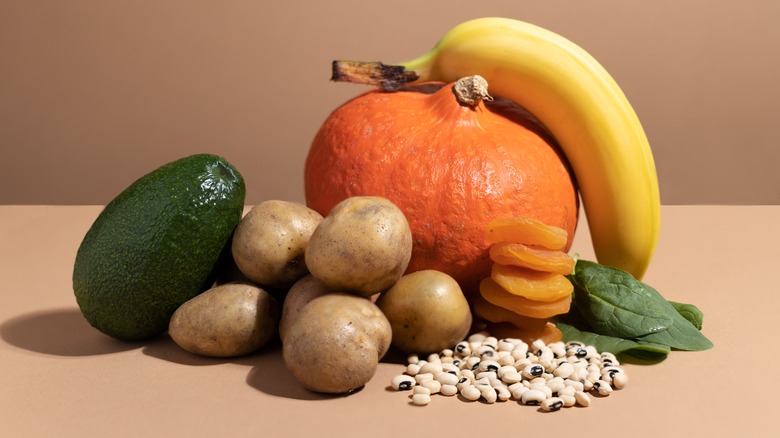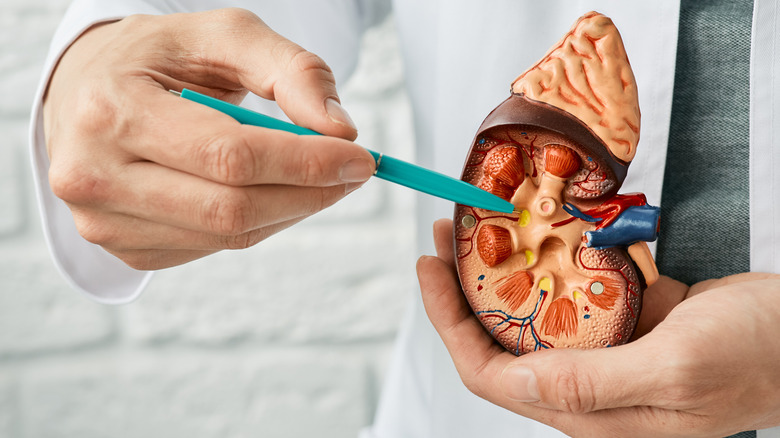Who A Low-Potassium Diet Is Best For?
Potassium plays a very important role in the body. According to Harvard's School of Public Health, it is incredibly critical at the cellular level to ensure that there is always enough fluid within each cell of the body. It also contributes to maintaining healthy blood pressure and makes up the delicate chemical cascade that allows muscles to contract.
Most people won't have trouble getting enough potassium in their diet, as it is found in a wide range of foods, including potatoes, bananas, cantaloupe, dried fruits, dairy and plant milks, nuts, and salmon. A standard intake for potassium is broken down by age and sex. For women over the age of 19, an Adequate Intake (AI) should be around 2,600 milligrams per day, while men in the same age bracket should shoot for 3,400 milligrams per day. Fortunately, most people average an intake just below these guidelines, making a potassium deficiency fairly rare, as per a 2009-2010 National Health and Nutrition Examination Survey (via the U.S. Department of Agriculture).
Not everyone should follow the above recommended daily intake for potassium, however. Those with certain heart or kidney conditions will need to minimize the amount of potassium they ingest on a daily basis, as their body may not be getting rid of any excess potassium as it should, leading to potentially dangerous complications, explains WebMD.
If you have kidney disease, you may need to watch your potassium levels
The organs responsible for filtering potassium are the kidneys (per Healthline). When they are functioning normally, any excess potassium you ingest will be filtered and eliminated in the urine. However, for anyone with kidney disease or those taking certain medications to treat kidney impairment, this process may not work as it should, leading to a build-up of potassium in the blood.
High potassium levels can lead to a life-threatening condition known as hyperkalemia, which puts your heart at risk, states the National Kidney Foundation. If you develop hyperkalemia, you'll likely feel muscle weakness, nausea, chest pain, and heart palpitations. When hyperkalemia is ongoing and recurring, a doctor will recommend a low-potassium diet to manage the condition.
When following a low-potassium diet, it's important to pay attention to portions as many foods do contain some level of potassium, reports WebMD. You'll want to avoid high-potassium foods or severely restrict the amount you eat and focus instead on low-potassium foods, such as apples, strawberries, asparagus, broccoli, lettuce, peas, non-whole-grain bread, pasta, and rice. It's also possible to eat certain foods with higher levels of potassium, as long as you leach the mineral first by cutting and soaking them in water for two hours before cooking — this works best with vegetables like potatoes, carrots, and squash. That being said, you should always check with your doctor for customized guidelines on what you can and cannot eat on a low-potassium diet.


